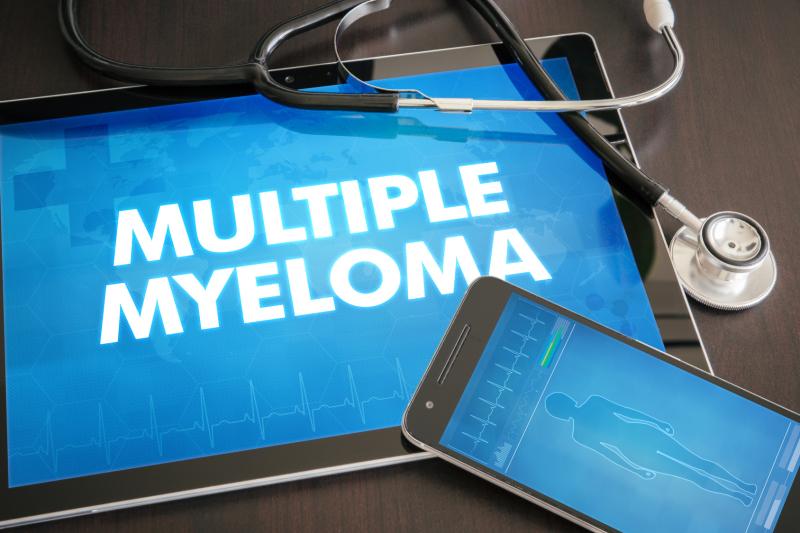
The combination of oral selinexor plus dexamethasone appears to induce response in patients with triple-class refractory myeloma, according to data from the second part of the phase II STORM* study.
A total of 123 patients received oral selinexor (80 mg) plus dexamethasone (20 mg) twice weekly. All of them had disease refractory to at least one proteasome inhibitor, one immunomodulatory agent and daratumumab. The median age of the population was 65 years, and the median number of previous regimens was seven. More than half of the patients (53 percent) had high-risk cytogenetic abnormalities.
Twenty-six percent of the population achieved the primary outcome of a partial or better response (including two stringent complete responses), while 39 percent showed minimal response or better. The median duration of response was 4.4 months.
The median progression-free survival was 3.7 months (95 percent confidence interval [CI], 3.0–5.3), and the median overall survival (OS) was 8.6 months (95 percent CI, 6.2–11.3). OS was more favourable in the subgroups of patients with a partial response or better and those with a minimal response or better (median, 15.6 months in both).
In terms of safety, commonly reported adverse events (AEs) were mild-to-moderate fatigue, nausea and decreased appetite. Twenty-five percent of patients developed grade 3 AEs, and none had grade 4 AEs. Thrombocytopaenia occurred in 73 percent of the patients, leading to bleeding events of grade ≥3 in six patients.
The present data establish the activity of selinexor with dexamethasone. Researchers pointed out that they used a regimen with a high dose of selinexor to achieve rapid disease control, given the small window of opportunity to prevent further illness and death owing to the fast progression of penta-exposed, triple-class refractory myeloma.
*Selinexor Treatment of Refractory Myeloma